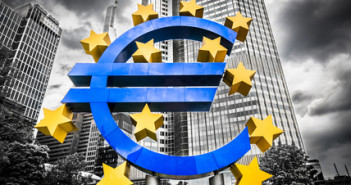As the clock is ticking, it seems that German Chancellor Angela Merkel is willing to make a significant compromise, at least in order to push back the deadline for now. This also comes as outflows from Greek banks intensify, and the ECB is experiencing increased exposure.
According to reports, Germany is willing to accept only one reform from Greece in order to release bailout funds, that will eventually be used to pay back loans and prevent Greece from defaulting, something that looked very close in recent days.
The risk of seeing Greece default on IMF payments, ECB debt and also money guaranteed by German taxpayers (among others), seem to have taken their toll. As the song goes: “when you got nothing, you got nothing to lose“. This may apply for Greece now. Germany has more to lose, and so does its leader.
It’s probably less risky to blink now and kick the can down the road until March 2016. This would not be welcomed by her tough finance minister and part of the press, but seeing a rupture could probably have worse consequences. Also her SPD coalition partners would probably like a deal more than her colleagues from her CDU party.
Regarding the topic of the primary surplus, it seems that it is no longer a deal breaker. It seems that Greece is willing to accept a primary surplus goal of 1%, up from 0.75% they were willing to agree to beforehand. However, a level of 1.2% was already accepted by the same Greek government a few months ago.
And what reform would Greece accept? Will it back down from one of its “red lines”? In any case, surrendering on one red line is better than on all of them.
This still is not over: apart from details needed to be seen, any agreement would also have to receive the nod of the “institutions”, as the troika is now called. This consists of the European Commission (which Germany dominates), the ECB (which would not want to risk its money, even if unlimited, and its credibility) and the IMF, which could be the only real hurdle.
But if confirmed, it is akin to a 7:1 victory for Greece against Germany in a football match, the score which Germany beat Brazil in the World Cup semi-finals.
What does it mean for the euro? This is good news in the short term, as it removes a significant risk. However, if the Greek crisis indeed moves to the sidelines, monetary policy convergence could gain for attention, and that is less favorable for the euro against the dollar.
More: State of EUR/USD – The fall, the recovery and what’s next
